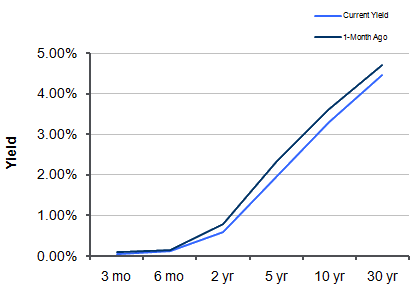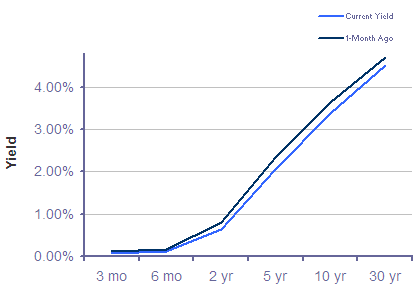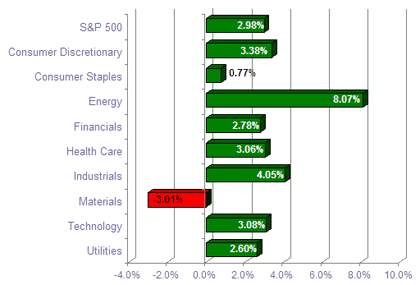
Market Commentary by Scott J. Brown, Ph.D., Chief Economist

There were plenty of economic data reports, but the focus was primarily on Japan. Worries about trade and supply-chain disruptions, as well as escalating problems at damaged Japanese nuclear reactors, sent global equity markets sharply lower. However, the U.S. stock market rebounded broadly. G7 finance ministers and central bankers agreed to rare coordinated intervention in the currency markets to prevent the yen from strengthening. Late Thursday, the U.N. Security Council agreed to set up a no-fly zone in Libya and there were reports of U.S. arms being supplied to the opposition thru Egypt, but on Friday, Qaddafi signaled a cease-fire.
The Federal Open Market Committee left short-term interest rates unchanged and kept its conditional commitment to keep rates low for “an extended period.” The FOMC recognized that higher prices of energy and other commodities will put upward pressure on consumer price inflation in the near term, but said that it expects the impact to be “transitory.” Still, the FOMC promised to watch the underlying trend in inflation and inflation expectations closely.
The economic data were mixed, but generally consistent with a continued recovery. The Consumer Price Index was boosted by higher food and energy prices in February, but the core rate was moderate (a somewhat higher trend in early 2011, but up from a very low level in 2010).
Next week, there could be some surprises in the economic data reports, but none of the figures are likely to alter (or even clarify) the underlying economic picture. Home sales are near a seasonal low in February and seasonal adjustment could magnify what would otherwise be minor changes in activity. Durable goods orders are very choppy, but should continue to trend moderately higher. More important data will arrive in the following week, with a clear focus on the March Employment Report.
Indices
| Last | Last Week | YTD return % | |
| DJIA | 11774.59 | 11984.61 | 1.70% |
| NASDAQ | 2636.05 | 2701.02 | -0.63% |
| S&P 500 | 1273.72 | 1295.11 | 1.28% |
| MSCI EAFE | 1628.90 | 1694.76 | -1.77% |
| Russell 2000 | 785.52 | 799.53 | 2.03% |
Consumer Money Rates
| Last | 1-year ago | |
| Prime Rate | 3.25 | 3.25 |
| Fed Funds | 0.16 | 0.18 |
| 30-year mortgage | 4.76 | 5.05 |
Currencies
| Last | 1-year ago | |
| Dollars per British Pound | 1.613 | 1.536 |
| Dollars per Euro | 1.401 | 1.378 |
| Japanese Yen per Dollar | 79.010 | 90.140 |
| Canadian Dollars per Dollar | 0.987 | 1.007 |
| Mexican Peso per Dollar | 12.110 | 12.446 |
Commodities
| Last | 1-year ago | |
| Crude Oil | 101.42 | 82.93 |
| Gold | 1403.63 | 1123.50 |
Bond Rates
| Last | 1-month ago | |
| 2-year treasury | 0.59 | 0.79 |
| 10-year treasury | 3.29 | 3.62 |
| 10-year municipal (TEY) | 4.82 | 5.57 |
Treasury Yield Curve – 3/18/2011

S&P Sector Performance (YTD) – 3/18/2011

Economic Calendar
| March 21st | — | Existing Home Sales (February) |
| March 23rd | — | New Home Sales (February) Bernanke Speaks (“community banking”) |
| March 24th | — | Jobless Claims (week ending March 19th) Durable Goods Orders (February) |
| March 25th | — | Real GDP (4Q10, 3rd estimate) Consumer Sentiment (March) |
| March 28th | — | Personal Income and Spending (February) |
| March 29th | — | Consumer Confidence (March) |
| April 1st | — | Employment Report (March) ISM Manufacturing Index (March) Unit Auto Sales (March) |
| April 13th | — | Retail Sales (March) Fed Beige Book |
| April 26th/27th | — | FOMC Meeting |
Treasury Yield Curve – 3/11/2011

S&P Sector Performance (YTD) – 3/11/2011

Economic Calendar
| March 13th | — | Daylight Savings Time Begins |
| March 15th | — | Import Prices (February) Empire State Manufacturing Index (March) Homebuilder Sentiment (March) FOMC Meeting |
| March 16th | — | Producer Price Index (February) Building Permits, Housing Starts (February) |
| March 17th | — | Jobless Claims (week ending March 12th) Consumer Price Index (February) Industrial Production (February) Philadelphia Fed Index (March) Leading Economic Indicators (February) |
| March 21st | — | Existing Home Sales (February) |
| March 23rd | — | New Home Sales (February) |
| March 24th | — | Durable Goods Orders (February) |
| March 29th | — | Consumer Confidence (March) |
| April 1st | — | Employment Report (March) |
Important Disclosures
Past performance is not a guarantee of future results. There are special risks involved with global investing related to market and currency fluctuations, economic and political instability, and different financial accounting standards. The above material has been obtained from sources considered reliable, but we do not guarantee that it is accurate or complete. There is no assurance that any trends mentioned will continue in the future. While interest on municipal bonds is generally exempt from federal income tax, it may be subject to the federal alternative minimum tax, state or local taxes. In addition, certain municipal bonds (such as Build America Bonds) are issued without a federal tax exemption, which subjects the related interest income to federal income tax. Investing involves risk and investors may incur a profit or a loss.
US government bonds and treasury bills are guaranteed by the US government and, if held to maturity, offer a fixed rate of return and guaranteed principal value. US government bonds are issued and guaranteed as to the timely payment of principal and interest by the federal government. Treasury bills are certificates reflecting short-term (less than one year) obligations of the US government.
Commodities trading is generally considered speculative because of the significant potential for investment loss. Markets for commodities are likely to be volatile and there may be sharp price fluctuations even during periods when prices overall are rising. Specific sector investing can be subject to different and greater risks than more diversified investments.
Tax Equiv Muni yields (TEY) assume a 35% tax rate on triple-A rated, tax-exempt insured revenue bonds.
![]() Material prepared by Raymond James for use by its financial advisors.
Material prepared by Raymond James for use by its financial advisors.
The information contained herein has been obtained from sources considered reliable, but we do not guarantee that the foregoing material is accurate or complete. Data source: Bloomberg, as of close of business March 17th, 2011.
©2011 Raymond James Financial Services, Inc. member FINRA / SIPC.


